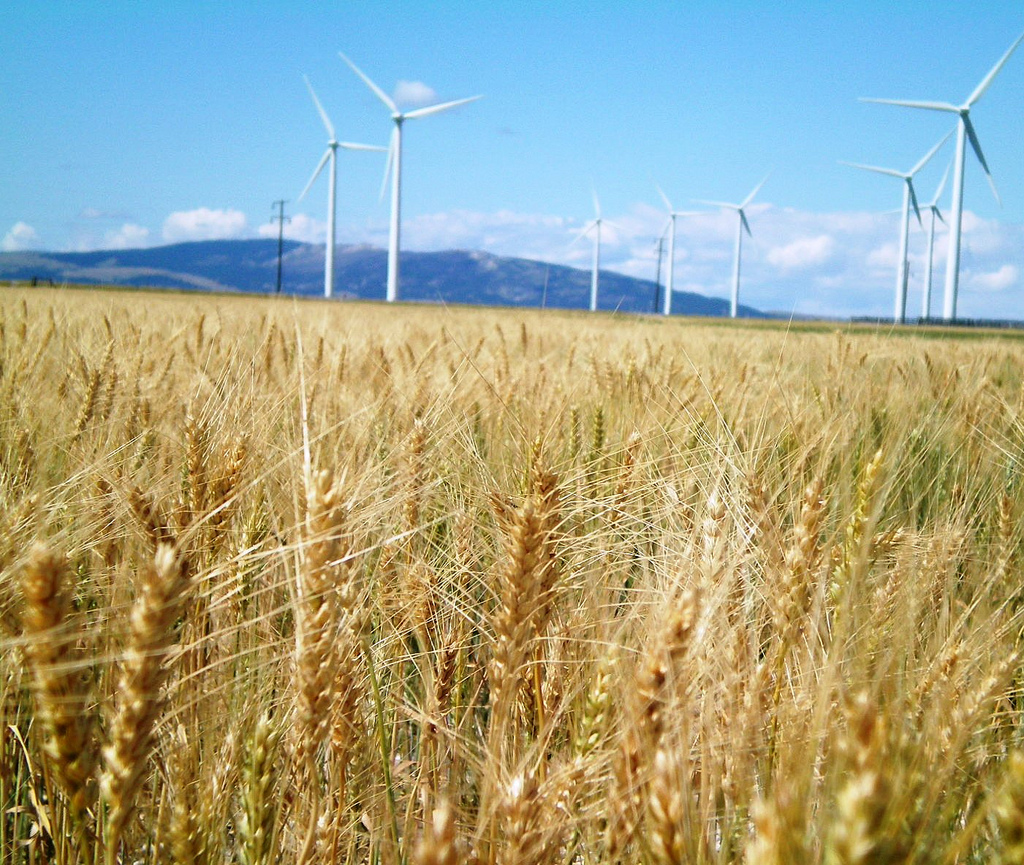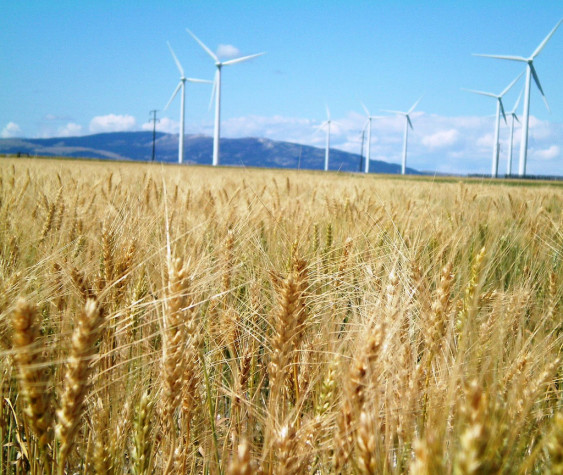Legislation that would halt the era of polluting for free in Washington State (SB 6203)—a carbon tax—was ushered to the Ways and Means Committee last week. The carbon tax is part of a suite of climate and energy policies, among them Senate Bill 6253, requiring utilities to shift to power from carbon-free sources. The idea is to step the state economy down from dirty fuels and up to locally-produced renewables, while funding emission reduction efforts, transit and other alternative forms of transportation, and assisting rural communities. Polluters that would pay are the big oil, gas, and electricity companies.
Although Washington State voters rejected a carbon tax measure at the ballot a couple years ago—tax increases rarely fare well—plenty of state polling indicates that there is an appetite for stemming pollution and supporting clean energy.
As we wait for SB6203’s next stop in the process, let’s review how Washington voters feel about progress to shift to renewables and curb climate damage.
Although Washington State voters rejected a carbon tax measure at the ballot a couple years ago—tax increases rarely fare well—plenty of state polling indicates that there is an appetite for stemming pollution and supporting clean energy.
A November 2016 poll by FM3, on the heels of the failed ballot effort, found high levels of support nonetheless. A combined 67 percent either said they wanted a I-732-style carbon tax (38 percent) or saw I-732 as too flawed but wanted an improved version (29 percent). Only 23 percent said that Washington doesn’t need to take this kind of step at all to combat climate change.
It’s promising, but also a case where attitudes—even strong ones—don’t always convert to votes for particular legislation. (More than six in ten Trump voters support taxing or regulating the pollution that causes global warming. That doesn’t mean they’d vote “yes” when presented with a choice on specific legislation). A majority of American voters appear to be in favor of taxing carbon pollution to protect the climate and they even say they’d pay extra for energy to support it. Again, that’s on paper—or over the phone to a pollster. The ballot may be too tough a test.
Nevertheless, Washington voters are concerned about global warming and they may be in the mood to praise, not punish, legislators who drive progress. The 2016 FM3 poll found 69 percent of Washington voters support state measures to cut carbon pollution, including 48 percent who feel “strongly.” Statewide, 61 percent said they are more likely to support a state legislator who steps up to take action addressing climate change. Only 26 percent said they would be less likely to support such a legislator.
Climate Solutions and Audubon Washington recently released state-wide polling numbers from late 2017 that show support for ditching fossil fuels and moving to 100 percent clean energy—as well as political cover for lawmakers who take the state that direction:
- 66 percent of likely voters support a policy that would require electrical utilities to phase out coal-generated electricity by 2030, and phase in electricity generation from solar, wind, hydroelectric and other clean and renewable resources, to reach 100 percent by 2045. A healthy share of voters—46 percent—said they would be more likely to support their state legislator if they voted for this measure in the 2018 legislative session.
- 65 percent of likely voters back a potential ballot measure that would create a Clean Fuel Standard, requiring oil refineries and distributors to reduce the carbon pollution in Washington fuels by 10 percent by 2025, and protect existing funding for public transit and trails. Forty-five percent say that they would be more likely to support a state legislator that backed the creation of a Clean Fuel Standard.
More broadly, attitudes remain favorable to action: opinion modeling by the Yale Program on Climate Change Communication shows that in every Congressional district across Washington, at least 7 in 10 voters (and sometimes close to 8 in 10) support regulating carbon as a pollutant, including solid majorities of Republican voters. Democrats’ support is closer to 9 in 10. The same holds for Washington’s counties, east and west, with the lowest level of support a robust 67 percent (Garfield County). Majorities across the state support strict regulations on coal-fired power plants. Ditto: requiring utilities to produce 20 percent of electricity from renewable sources.
These are clearly Washingtonians’ values, but will these values be reflected by legislators who are weighing the decision? Will they lead the state ahead, or drag their feet and delay once again?











Jim Allyn
The proposed standard of
“66 percent of likely voters support a policy that would require electrical utilities to phase out coal-generated electricity by 2030, and phase in electricity generation from solar, wind, hydroelectric and other clean and renewable resources, to reach 100 percent by 2045”
is inadequate. Much of Washington’s electricity already comes from clean sources like hydro and wind, and we can – and MUST – do better than this. And this doesn’t appear to address emissions from transportation at all. Much better would be Hawaii Representative Tulsi Gabbards’ “Off Fossil Fuels for a Better Future Act” (H.R. 3671), which would mandate:
“By 2027: (1) 80% of electricity sold must be generated from clean energy resources, (2) 80% of new vehicle sales from manufacturers must be sales of zero-emission vehicles, and (3) 80% of train rail lines and train engines must be electrified. By 2035: (1) 100% of electricity must be generated from clean energy resources, (2) 100% of vehicle sales from manufacturers must be zero-emission vehicles, and (3) 100% of train rail lines and train engines must be electrified.”
Almost certainly that also is inadequate, but it sure beats what the people of Washington State are currently supporting. We can do this, people. We MUST do this. Don’t settle for half measures. Push for more, and faster. Lives depend on this.